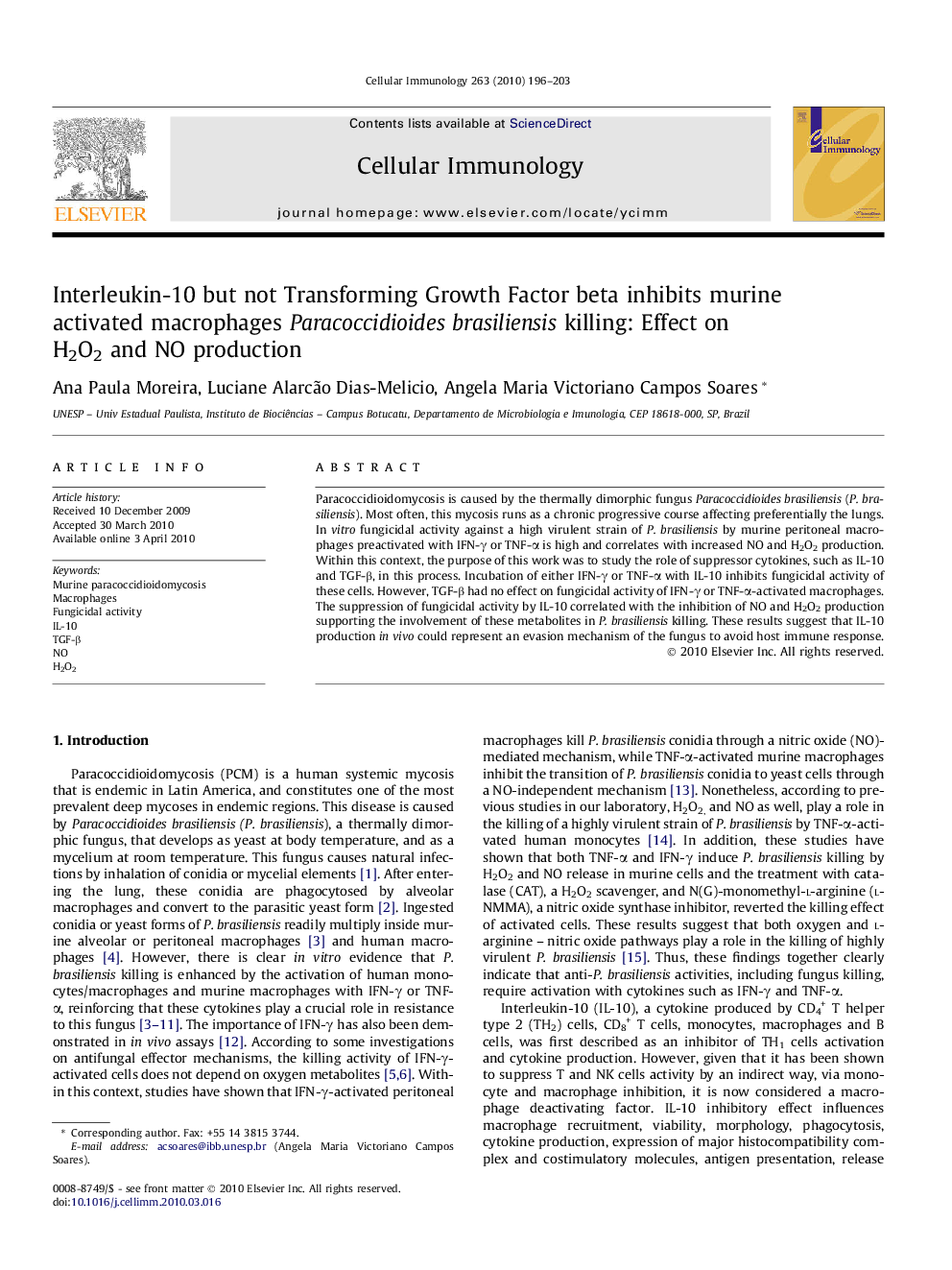| Article ID | Journal | Published Year | Pages | File Type |
|---|---|---|---|---|
| 2167591 | Cellular Immunology | 2010 | 8 Pages |
Paracoccidioidomycosis is caused by the thermally dimorphic fungus Paracoccidioides brasiliensis (P. brasiliensis). Most often, this mycosis runs as a chronic progressive course affecting preferentially the lungs. In vitro fungicidal activity against a high virulent strain of P. brasiliensis by murine peritoneal macrophages preactivated with IFN-γ or TNF-α is high and correlates with increased NO and H2O2 production. Within this context, the purpose of this work was to study the role of suppressor cytokines, such as IL-10 and TGF-β, in this process. Incubation of either IFN-γ or TNF-α with IL-10 inhibits fungicidal activity of these cells. However, TGF-β had no effect on fungicidal activity of IFN-γ or TNF-α-activated macrophages. The suppression of fungicidal activity by IL-10 correlated with the inhibition of NO and H2O2 production supporting the involvement of these metabolites in P. brasiliensis killing. These results suggest that IL-10 production in vivo could represent an evasion mechanism of the fungus to avoid host immune response.
